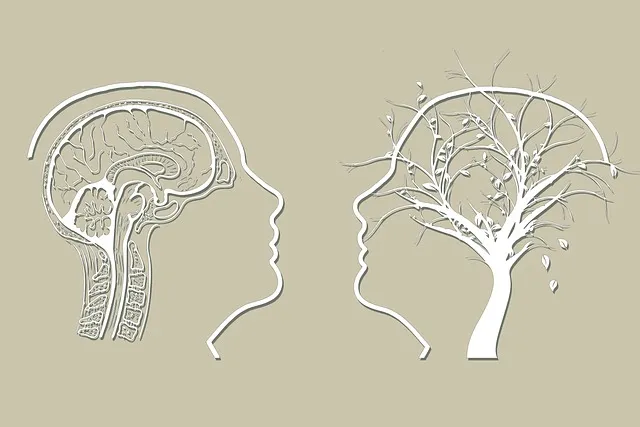Mental wellness coaching programs, recognized as valuable tools by Kaiser Permanente behavioral health services reviews Boulder, offer personalized, goal-oriented support that empowers individuals to take charge of their mental well-being. Integrating evidence-based practices with practical strategies, these programs guide clients towards enhancing emotional intelligence, developing robust coping mechanisms, and implementing effective risk management planning. The ultimate goals are to promote self-awareness, cultivate healthy habits, and achieve a balanced lifestyle, contributing to sustained mental wellness. Boulder's holistic approach, highlighted in these reviews, features culturally sensitive interventions tailored to individual needs, leading to improved resilience within diverse communities.
“Explore the evolving landscape of mental wellness coaching with this comprehensive guide. From understanding its fundamentals to examining real-world implementations, we delve into effective strategies. This article offers a detailed overview, highlighting successful programs like Kaiser Permanente’s Behavioral Health Services and Boulder’s unique approach. Discover key components for developing impactful coaching, and learn how to measure success through evaluation methods. Gain insights that can inform and enhance mental wellness initiatives.”
- Understanding Mental Wellness Coaching: A Comprehensive Overview
- Kaiser Permanente Behavioral Health Services: A Case Study
- Boulder's Approach to Mental Health Support: Unique Features and Challenges
- Developing Effective Coaching Programs: Key Components and Strategies
- Measuring Success: Evaluating the Impact of Mental Wellness Coaching
Understanding Mental Wellness Coaching: A Comprehensive Overview

Mental wellness coaching programs have gained significant importance in recent years, especially with the growing recognition of mental health as a crucial aspect of overall well-being. This approach focuses on empowering individuals to take charge of their mental health and cultivate resilience in navigating life’s challenges. Unlike traditional therapy, which often involves long-term treatment plans, coaching provides a more personalized and goal-oriented support system.
In the context of Kaiser Permanente behavioral health services reviews Boulder, these programs have been designed to offer accessible and effective solutions for stress management. By combining evidence-based practices with practical strategies, coaches help clients develop emotional intelligence, enhance coping mechanisms, and implement risk management planning for mental health professionals. The emphasis is on fostering self-awareness, building healthy habits, and promoting a balanced lifestyle, all of which contribute to long-term mental wellness.
Kaiser Permanente Behavioral Health Services: A Case Study

Kaiser Permanente Behavioral Health Services, based in Boulder, has garnered significant attention for its comprehensive and innovative approach to mental wellness coaching. This case study highlights their commitment to transforming lives through tailored interventions. The program’s success lies in integrating evidence-based practices with a strong focus on Cultural Sensitivity in Mental Healthcare Practice. By addressing individual needs, they facilitate Emotional Healing Processes, enabling clients to navigate life’s challenges with enhanced resilience.
Reviews consistently praise the personalized nature of these services, which go beyond traditional therapy models. Through innovative Stress Reduction Methods, Kaiser Permanente empowers individuals to manage and overcome mental health issues. This holistic strategy has led to positive outcomes, demonstrating the program’s effectiveness in fostering mental wellness within a diverse community.
Boulder's Approach to Mental Health Support: Unique Features and Challenges

Boulder’s approach to mental health support stands out for its holistic and personalized nature, integrating self-care practices tailored to individual needs. Unlike traditional models, Boulder emphasizes community engagement and cultural sensitivity in mental healthcare practice, making it a unique beacon of hope for many. This approach is reflected in the Kaiser Permanente behavioral health services reviews, which consistently praise Boulder’s innovative strategies. By combining evidence-based therapies with a focus on anxiety relief and mindfulness, Boulder offers a comprehensive framework that addresses not just symptoms but also underlying causes. The challenge lies in ensuring accessibility to this unique model, as it requires dedicated resources and specialized professionals. However, the benefits in terms of improved mental wellness outcomes and enhanced patient satisfaction make Boulder’s approach a game-changer in the field of behavioral health services.
Developing Effective Coaching Programs: Key Components and Strategies

Developing effective coaching programs requires a strategic approach that combines proven techniques with an understanding of individual needs. At Kaiser Permanente behavioral health services in Boulder, reviews highlight the success of tailored coaching models. These programs focus on key components such as Emotional Regulation and Emotional Well-being Promotion Techniques, ensuring coaches are equipped to guide clients towards lasting mental wellness.
The strategic implementation of these strategies involves identifying specific goals, designing personalized action plans, and utilizing evidence-based practices like burnout prevention techniques. By integrating these elements, coaching programs can create a supportive environment that fosters growth, enhances resilience, and ultimately contributes to improved Kaiser Permanente behavioral health services reviews Boulder clients’ overall well-being.
Measuring Success: Evaluating the Impact of Mental Wellness Coaching

Measuring success is a vital aspect of evaluating the impact and effectiveness of mental wellness coaching programs. In the context of Kaiser Permanente behavioral health services reviews Boulder, several key metrics can be employed to assess progress. These include client satisfaction surveys, which gauge how beneficial the coaching sessions have been for individuals’ overall well-being and coping mechanisms.
Additionally, tracking improvements in specific areas such as mood management, risk management planning for mental health professionals, and self-care routine development can provide comprehensive insights. Over time, these assessments help in refining coaching strategies to better cater to individual needs, ensuring that the program aligns with the latest research and best practices in the field of mental health support.
Mental wellness coaching programs, as exemplified by Kaiser Permanente behavioral health services reviews and Boulder’s innovative support systems, hold immense potential in transforming mental healthcare. By integrating key components such as personalized goals, evidence-based practices, and regular monitoring, these programs can effectively support individuals navigating various mental health challenges. As highlighted in this article, developing comprehensive coaching strategies that cater to diverse needs is crucial for enhancing accessibility and outcomes in behavioral health services, both locally as in Boulder, and on a larger scale, such as Kaiser Permanente’s model.






